The list of Ivy League schools in the USA represent a prestigious and exclusive group of eight private institutions in the States. Renowned for their academic excellence, selective admissions process, and rich history, these schools hold a special place in higher education. With a tradition dating back to the mid-18th century, the universities, Ivy League continue to produce some of the world’s most influential leaders and scholars across various fields. Their legacy of rigorous academics, distinguished faculty, and strong alumni networks has cemented their reputation as symbols of educational excellence and intellectual pursuit. Here are the 8 universities arranged as per their national university rankings.
Looking for Admissions help? StudyHQ student advisors can you help you, Submit your Application
List of TOP Ivy League Schools WITH ACCEPTANCE RATES AND FEES
What schools are the Ivy league? This table provides a concise overview of some of the most prestigious institutions in the USA – the list Ivy League schools ranked – along with the list of Ivy league schools location and acceptance rates at ivy league schools. It also further provides comparing Ivy league schools on these factors. You may also find Ivy league schools tuition fee details here.
-
PictureUniversity NameLocationDetails
-
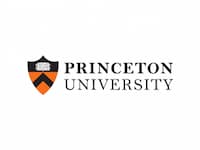 Princeton, NJAcceptance Rate: 5.60%
Princeton, NJAcceptance Rate: 5.60%
National University Ranking: 1
Fee: $59,710
Scholarships: More than USD 72,000 -
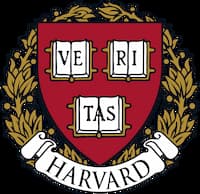 Cambridge, MAAcceptance Rate: 4.90%
Cambridge, MAAcceptance Rate: 4.90%
National University Ranking: 3
Fee: $59,076
Scholarships: Upto USD 10,000 -
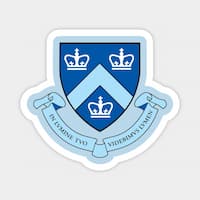 New York, NYAcceptance Rate: 6.10%
New York, NYAcceptance Rate: 6.10%
National University Ranking: 12
Fee: $65,524
Scholarships: Up to USD 10,000 -
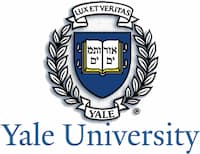 New Haven, CTAcceptance Rate: 6.50%
New Haven, CTAcceptance Rate: 6.50%
National University Ranking: 5
Fee: $64,700
Scholarships: Upto USD 70,000 -
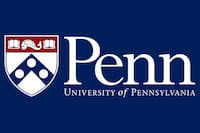 Philadelphia, PAAcceptance Rate: 8.10%
Philadelphia, PAAcceptance Rate: 8.10%
National University Ranking: 6
Fee: $66,104
Scholarships: Up to USD 56,000 -
 Hanover, NHAcceptance Rate: 8.80%
Hanover, NHAcceptance Rate: 8.80%
National University Ranking: 18
Fee: $65,511
Scholarships: Up to USD 50,000 -
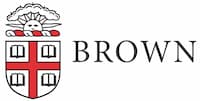 Providence, RIAcceptance Rate: 6.90%
Providence, RIAcceptance Rate: 6.90%
National University Ranking: 9
Fee: $68,230
Scholarships: Upto 50% -
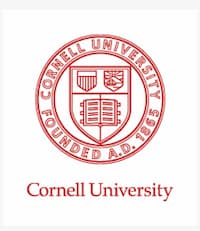 Ithaca, NYAcceptance Rate: 10.70%
Ithaca, NYAcceptance Rate: 10.70%
National University Ranking: 12
Fee: $66,014
Scholarships: Upto USD 35,000
What Are The Ivy League Schools?
If your question is, what is Ivy league and what are the 8 Ivy league schools, then the answer is that the Ivy League schools are a group of prestigious private universities in the United States known for their academic excellence and historical significance. The term “Ivy League” was coined in the early 20th century and has since become synonymous with educational prestige and exclusivity.
But why are they called Ivy league schools? These Ivy schools are characterized by their rigorous academic programs, distinguished faculty, state-of-the-art facilities, and strong emphasis on research and innovation. Their selective admissions process ensures that only a small percentage of applicants are accepted, contributing to their reputation as top-tier institutions in the world of higher education. Each Ivy League university boasts a rich history, a vibrant campus community, and a network of accomplished alumni who have made significant contributions in various fields.
If you are wondering how many Ivy league schools are there, then the answer is eight and you can find the list and ivy leagues rankings above.
Why Are They Called The Ivy League Schools?
At the University of Pennsylvania, seniors marked “Ivy Day” during spring, a tradition that involved planting an Ivy plant. This practice, observed in universities like Brown, Harvard, and Yale, is linked to the term Ivy League.
The term “Ivy schools” was initially coined by sportswriter Stanley Woodward in a 1933 article. The first recorded use of “Ivy League” appeared in The Christian Science Monitor on February 7, 1935. Sportswriters and journalists embraced this term to denote the older northeastern U.S. colleges, particularly the nine colonial-era institutions, along with West Point, Naval Academy, and others.
Formally established in 1954 as an NCAA athletic conference, the Ivy League showcased a rich history in intercollegiate athletics, often pioneering such activities. The alternative theory of “Ivy” representing the Roman numeral IV hints at the initial four members of the league.
While Ivy League schools initially gained prominence in sports, they evolved into esteemed institutions, standing as leaders in various academic domains today.
Why Choose Ivy League?
- The Ivy League stands as the oldest educational consortium in the United States with a legacy over time that surpasses any other institution in the nation.
- Renowned for academic excellence, the Ivy League provides unparalleled guidance. Across diverse courses, these universities have top-tier talent, including esteemed professors, dedicated researchers, and exceptional students.
- With the distinction of being the oldest in the Ivy League, these universities flaunt an extensive alumni network. This network serves as a valuable resource, providing mentorship and potential job opportunities for those affiliated with these prestigious institutions.
IVY League colleges Admission Requirements
- Academic Excellence:
- Strong test scores (SAT or ACT)
- High GPA, preferably around 3.9 or higher
- Extracurricular Activities:
- Contributions to the community
- Leadership roles, community service, and other activities
- Diversity and Uniqueness:
- Exceptional talents, skills, or experiences
- Challenging Coursework:
- Courses such as Advanced Placement (AP) or International Baccalaureate (IB)
- Letters of Recommendation:
- Strong recommendations from teachers and councellors
- Application Essays:
- Compelling essays
- Test Scores (Optional):
- SAT or ACT scores are now optional for Ivy League schools.
- Still, high test scores can strengthen your application if you choose to submit them.
What Makes Ivy League Schools Different?
Below is a table elaborating on the differences that set Ivy League colleges apart from other institutions:
| Aspect | Ivy League Universities | Non-Ivy League Universities |
|---|---|---|
| History | Founded in the 17th and 18th centuries, the Ivy League universities are some of the oldest in the US. | Varied histories, some dating back centuries, while others may be more recently established. |
| Academic Reputation | Known for their academic rigor, world-class faculty, and high-quality education across various disciplines. | Varied academic reputations ranging from top-tier research institutions to regional or state-focused colleges. |
| Admissions Selectivity | Highly selective with low acceptance rates. Admissions process considers multiple factors, including academic achievements, extracurricular activities, essays, and interviews. | Varies significantly among non-Ivy universities, with some being highly selective and others having more accessible admissions policies. |
| Endowment | Ivy League universities often have substantial endowments, enabling them to offer generous financial aid and invest in cutting-edge facilities. | Endowments of non-Ivy universities can vary widely, with some having sizeable endowments and others having more limited resources. |
| Class Sizes | Boast small class sizes, providing more individualized attention and opportunities for close interactions with professors | Class sizes can vary, with some non-Ivy universities offering small classes, while others may have larger lectures |
| Alumni Network | Powerful and influential alumni network, providing significant networking opportunities for graduates | Have alumni networks, but they may not be as extensive or well-connected as those of Ivy League schools |
| Campus and Facilities | Campuses are well-maintained with historic buildings and modern facilities | Campus and facilities quality can differ significantly, depending on their funding and priorities |
| Tuition and Financial Aid | High tuition costs, but they often offer substantial financial aid packages to admitted students based on need | May have varying tuition rates and financial aid offerings. Some public universities may offer lower tuition for in-state residents. |
| Sports Programs | Emphasize academics over athletics, and their sports programs may not be as competitive as those in other collegiate athletic conferences | May have a wider range of sports programs, some of which are highly competitive in various sports |
| Overall Culture | Often associated with a traditional, prestigious, and intellectually focused culture | Can have diverse cultures and cater to a broader range of student interests and backgrounds |
Application Submission Dates
| University | Deadlines Dates |
|---|---|
| Princeton University | January 1, 3- 2025 March 15, 31- 2025 May 1- 2025 |
| Harvard University | January 3, 2025 April 15, 2025 |
| Columbia University | January 5, 15- 2025 February 15, 2025 April 3, 2025 May 9, 2025 June 15, 2025 |
| Yale University | January 2, 2025 February 25, 2025 November 1, 2025 |
| University of Pennsylvania | January 4, 2025 February 1, 2025 |
| Dartmouth College | January 3, 2025 |
| Brown University | January 15, 2025 February 1, 2025 March 17, 2025 April 1, 2025 May 15, 2025 |
| Cornell University | January 10, 15, 2025 February 1, 2025 March 1, 2025 April 10, 2025 May 1, 2025 September 20, 2025 December 31, 2025 January 10, 2025 February 1, 2025 |
Notable Ivy League Alumni
| Name | Ivy League School | Notable Achievements |
|---|---|---|
| Barack Obama | Columbia University | 44th President of the United States, Nobel Peace Prize laureate |
| Michelle Obama | Princeton University | Former First Lady of the United States, advocate for education and health |
| Elon Musk | University of Pennsylvania | Entrepreneur and CEO of Tesla, SpaceX, and other ventures |
| Ruth Bader Ginsburg | Cornell University | Former Associate Justice of the U.S. Supreme Court, champion of gender equality and civil liberties |
| Warren Buffett | Columbia University | Chairman and CEO of Berkshire Hathaway, one of the most successful investors in history |
| Oprah Winfrey | Harvard University | Media mogul, talk show host, and philanthropist |
| John F. Kennedy | Harvard University | 35th President of the United States, known for his leadership during the Cold War and civil rights advocacy |
| JK Rowling | Harvard University | Author of the “Harry Potter” series, one of the best-selling book series in history |
| Jeffrey Bezos | Princeton University | Founder of Amazon and Blue Origin, one of the wealthiest individuals in the world |
| Indra Nooyi | Yale University | Former Chairperson and CEO of PepsiCo, advocate for sustainability and diversity in business |
With a history of selective admissions, distinguished faculty, and a strong emphasis on research, these schools continue to shape the future and leave a mark on the world. The notable alumni who have emerged from these esteemed schools exemplify the transformative power of an Ivy League education, leaving a legacy of positive change and global impact.
Frequently Asked Questions
The admission process is highly competitive, with a low acceptance rate. Each year, thousands of talented applicants compete for a limited number of spots.
While specific requirements vary, competitive applicants often have a GPA of 3.8 or higher and impressive standardized test scores (SAT/ACT).
The Ivy League boasts a vast and influential alumni network that offers unparalleled connections, mentorship, and career opportunities.
Ivy League schools are committed to providing need-based financial aid, making education accessible to students from diverse backgrounds.
Yes, Ivy League universities welcome applications from international students, adding to their diverse and multicultural campus communities.
Ivy League institutions offer a wide range of programs across various disciplines, including top-notch business, law, medicine, engineering, and liberal arts programs.
Focus on academic excellence, engage in extracurricular activities, write compelling essays, and seek guidance from college counselors to strengthen your application.
